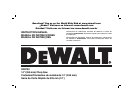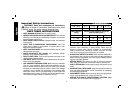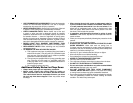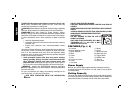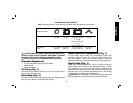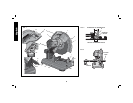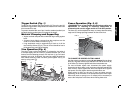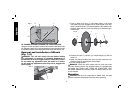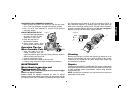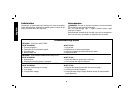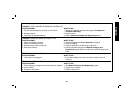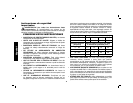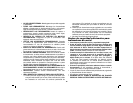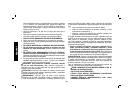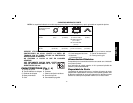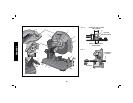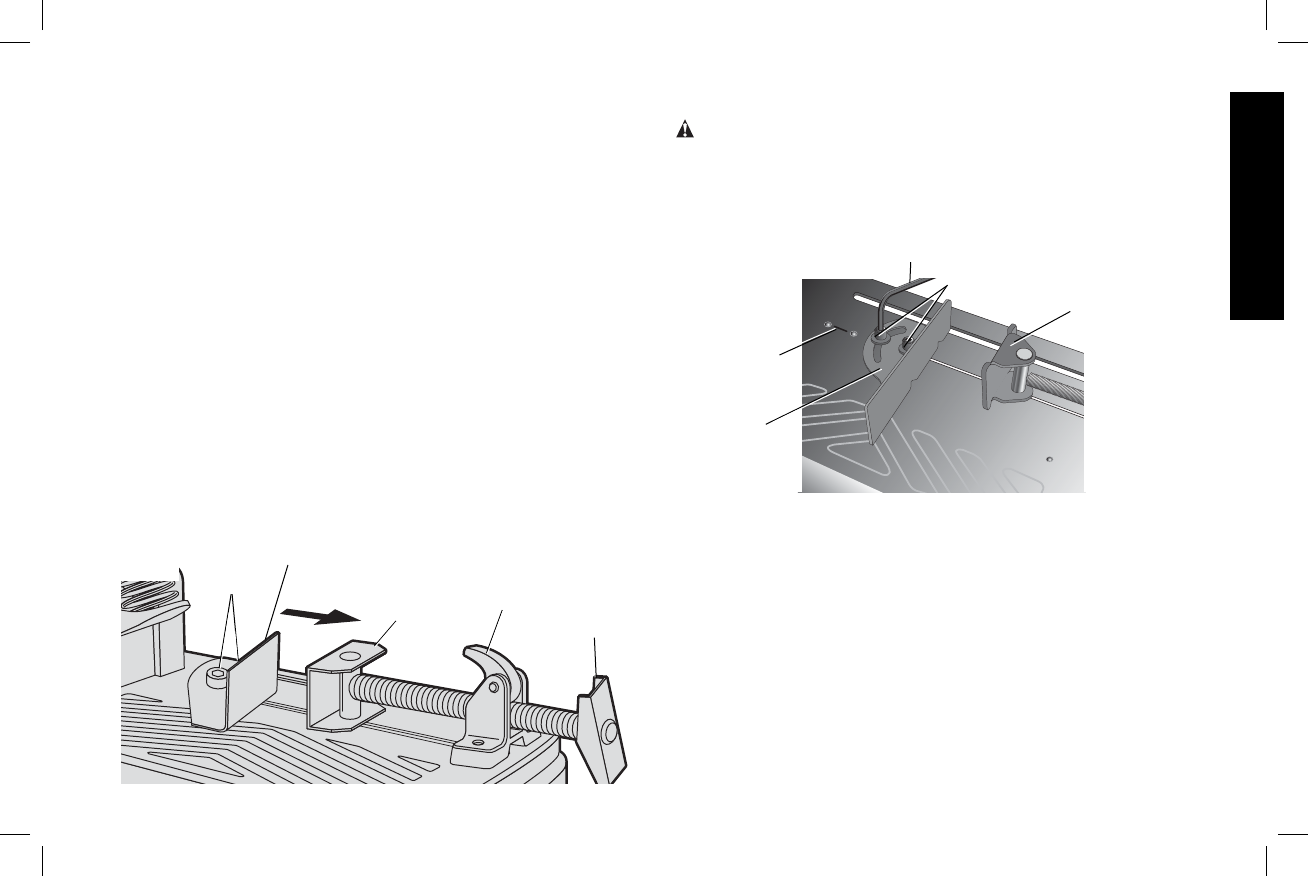
English
6
Trigger Switch (Fig. 1)
To start the tool, depress the trigger switch (N). To turn the tool off,
release the trigger switch. Keep hands and material from wheel until
it has coasted to a stop.
To prevent unauthorized use of tool, install a standard padlock (not
included) into the padlock hole (O) located in the trigger.
Material Clamping and Supporting
• Angles are best clamped and cut with both legs resting against
base.
• A spacer block slightly narrower than the workpiece can be
used to increase wheel utilization (Fig. 2).
• Long workpieces must be supported by a block so it will be
level with top of base (Fig. 3). The cut off end should be free to
fall downward to avoid wheel binding.
Vise Operation (Fig. 4)
The vise (F) has a quick-travel feature. To release the vise when it
is clamped tightly, turn the crank (H) counterclockwise one or two
times to remove clamping pressure. Lift vise lever (I) up. Pull crank
assembly out as far as desired. Vise may be pushed forward into
work without cranking. Lower vise lever (I) then tighten vise (F) on
work by using crank (H).
F
E
Q
FORWARD
FIG. 4
I
H
6
Fence Operation (Fig. 5, 6)
WARNING: Turn off and unplug the tool before making any
adjustments or removing or installing attachments or
accessories. Be sure the trigger switch is in the OFF position.
The fence (E) can be adjusted two ways: to change desired cutting
angle and to change spacing between the fence and vise.
FIG. 5
Q
E
G
F
R
TO CHANGE THE DESIRED CUTTING ANGLE
Use the wrench provided to loosen (do not remove) the two fence
bolts (Q). Align the desired angle indicator line with the slot line (R)
in the base (D). Securely tighten both fence bolts before use.
For more accurate square cuts, disconnect the power supply,
loosen the two fence bolts, push arm down until wheel extends into
base. Place a square against the wheel and adjust fence against
the square. Securely tighten both fence bolts before use.
When making a miter cut, the vise (F) may not clamp securely,
depending on the thickness of the workpiece and the miter angle.
Other aids (such as spring, bar or C-clamps) will be necessary to
secure the workpiece to the fence when making these cuts.



